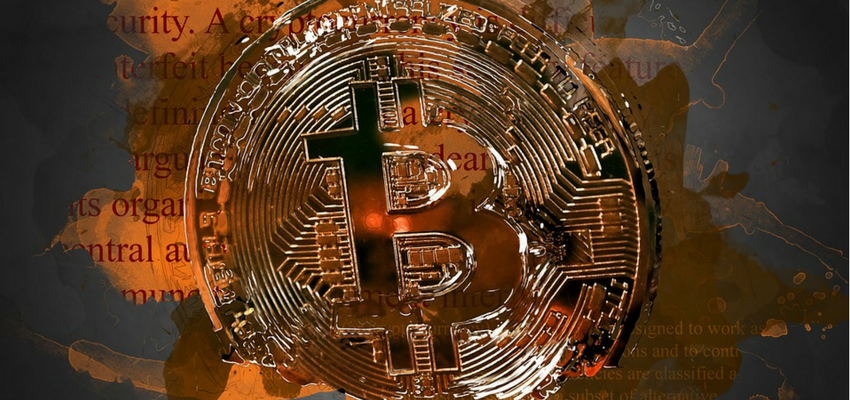
Despite naysayers saying that cryptocurrencies will bubble within the year, they continue to defy expectations by enjoying price boosts. Bitcoin, which was priced at $997.69 on January 2017, skyrocketed to $19,343 in December.
The recent publicity towards Bitcoin’s price surge has led to an increase in interest in the other cryptocurrencies as well.
Experts believe this is due to some form of trickle-down effect. Investors who become interested in Bitcoin realize that there are more digital currency investment options.
As a result, the other cryptocurrencies have also experienced price hikes in the past months, although not to the same extent as Bitcoin. Litecoin experienced a 225% price jump just this month, which led financial analysts Mitch Steves and Amit Daryanani to speculate that 2017 is just the beginning of the cryptocurrency boom.
While some experts dismiss the suggestion that cryptocurrencies may eventually replace traditional money, they also acknowledged that their prices will continue to soar in 2018.
A previous Take Your Success article even talked about how crypto coins are making their way into the Christmas stockings of investors. It’s only one of the many proofs of the increasing popularity of cryptocurrency.
Below are the top five cryptocurrencies that have positive 2018 projections from analysts across the world.
Bitcoin
Bitcoin remains as the head of the pack when it comes to cryptocurrencies, and analysts say that its rally will not stop in 2018.
Managing director of cryptocurrency trading firm Octagon Strategy Dave Chapman estimates that Bitcoin will go beyond $100,000 before 2018 ends. The expert, who earlier predicted that the digital currency will breach $10,000 in 2017, has an overall positive outlook towards the cryptocurrency. He took the position that Bitcoin is on its way to disrupting traditional financial systems with its ability to allow the immediate transfer of value without any need for middlemen.
Nonetheless, Coinwire reported that Canadian businessman Kevin O’Leary warned investors to take care when investing in Bitcoin. While he acknowledged that Bitcoins are assets, he also said that buying them is a gamble, with investors potentially losing all the money they put into it. He advised those interested in investing in Bitcoin to understand it better first before putting their money in it.
Its high cost – currently on its way to breaching the $20,000 mark – has dissuaded all but the richest investors in purchasing or mining this digital currency. Instead, they have turned to other cryptocurrencies.
Ethereum
Recently, Blockchain CEO Peter Smith announced that central banks are likely to hold Bitcoin and Ether by 2018. If this pushes through, this will be the first time that digital currencies will be bought by such financial institutions. This potential development can spell good news for Ethereum, which is already enjoying a price rally in the past months. Since its inception in 2015, it has enjoyed growth by over 1,200%.
Interestingly enough, Ethereum is not actually marketed as a digital currency, but rather as a smart contract network. According to experts, it is this aspect of Ethereum that explains why Ethereum actually has a more efficient system and covers a broader scope than Bitcoin. In fact, some experts are currently exploring whether the system can be used as a supply-chain efficiency solution.
Many Fortune 500 companies support Ethereum, which gives an indication of the cryptocurrency’s status as a sound investment choice.
Litecoin
Bitcoin might have the highest price compared tp other cryptocurrencies in 2017, but it’s actually Litecoin – which is being marketed as the silver to Bitcoin’s gold – that experienced a more dramatic surge. Fortune reported that Litecoin rose by 7,291%, as opposed to Bitcoin’s 1,731%.
Ironically, Litecoin’s creator Charles Lee maintains that he developed the digital currency to complement and not compete with Bitcoin. Still, more investors are now shifting to Litecoin because it is easier to mine and offers faster transactions.
Unlike Bitcoin which is focused on hefty transactions, Litecoin is packaged as a platform that can manage a large volume of small transactions quickly and efficiently. A Litecoin transaction can be completed roughly within 2.5 minutes, as opposed to Bitcoin, which processes transactions at around 10 minutes. Litecoin’s lower price, compared to Bitcoin, also makes this more accessible to budding cryptocurrency investors.
IOTA
IOTA recently made headlines when its price surged by over 90%. The spike happened after an announcement of its partnership with major tech firms such as Microsoft and Samsung on a marketplace that allows them to sell data.
The developers of IOTA claim that it is the first platform anchored on the Internet of Things. It stands out from other cryptocurrencies because it does not rely on the traditional blockchain network. Instead, it uses an alternative system, a ‘blockless’ digital ledger called Tangle. In theory, it has no limit for scaling, as opposed to cryptocurrencies operating on a blockchain network.
Furthermore, it does not require users to pay additional fees when making transactions. IOTA effectively created an incentive system for data sharing, all while ensuring data integrity.
Investors can enter trading with IOTA via Bitfinex.
Ripple
Ripple is considered by many experts to be the spiritual successor of Bitcoin, and it has already gathered its own share of supporters. It’s even accepted today as a payment platform for digital transactions. In the first half of 2017, its price surged by almost 4,000%. At the time of writing, Ripple is currently trading at $2.40 per unit. This is far past the benchmark of $0.75 which was considered as the threshold for the cryptocurrency to gain traction.
If the positive trend becomes more consistent, Ripple might get the support of more big firms as well. Oracle Times declared that it is likely to become the cryptocurrency of choice for Amazon, as well as other Internet-based retailers. This is because of Ripple’s faster transaction times and lower costs compared to Bitcoin.
Global financial retailers are more interested in stability than investment for the sake of its customers. This is precisely the reason why they tend to lean towards cryptocurrencies with lower volatility levels.
Disclosure: The author has invested in these cryptocurrencies. Also, this article is meant for information purposes only and is not investment advice. Seek a licensed professional if you’re looking for investment advice.


